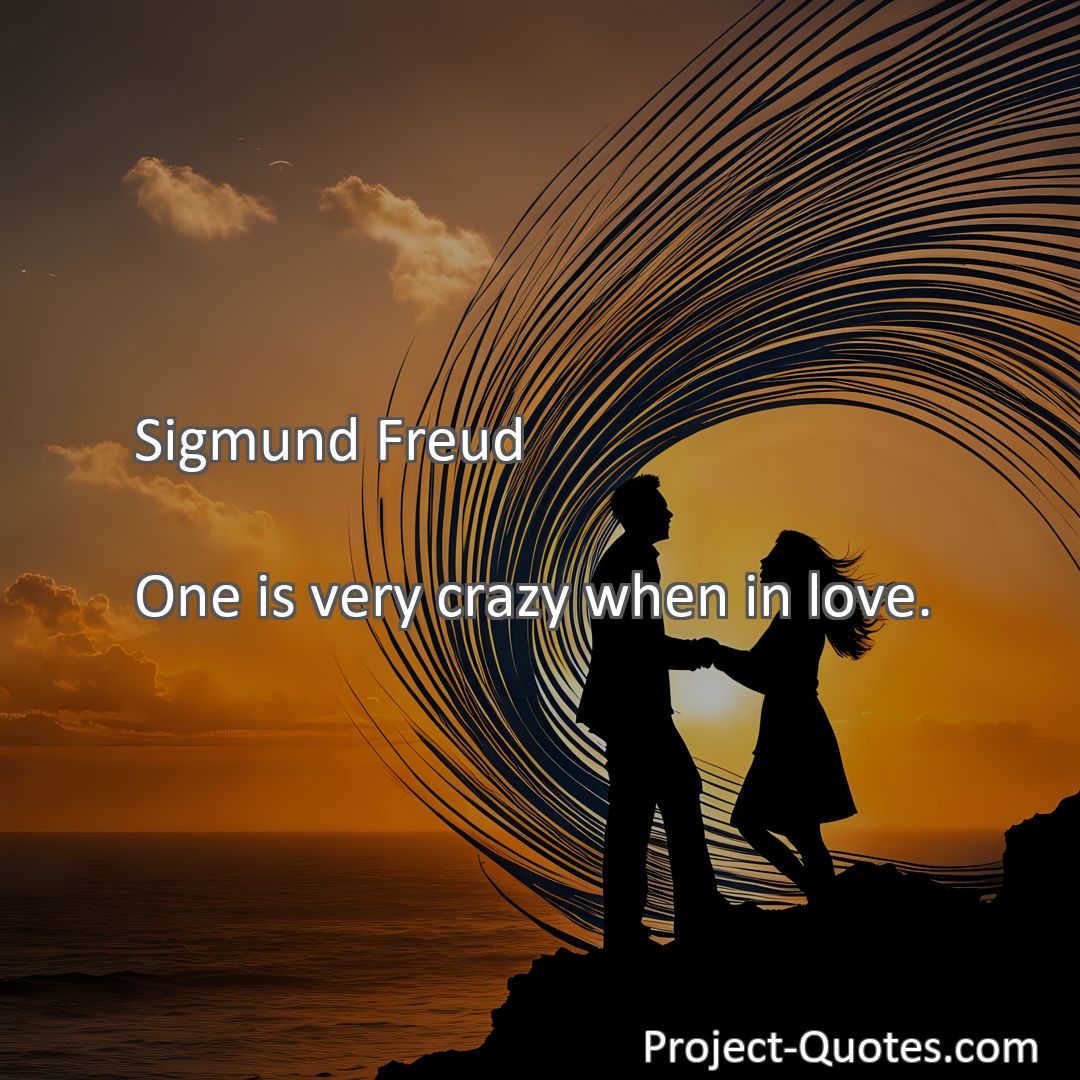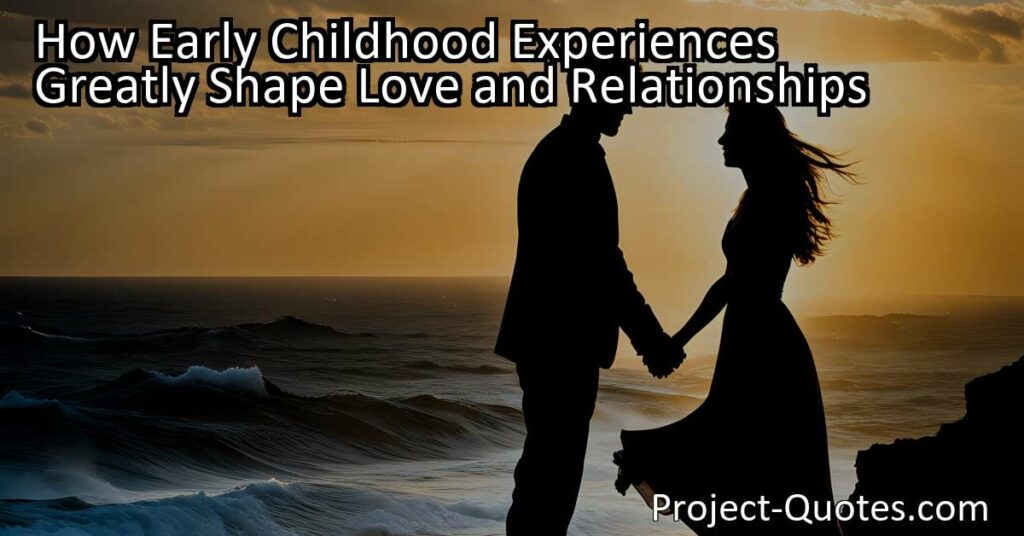One is very crazy when in love.
Sigmund Freud
Love and relationships are greatly shaped by our early childhood experiences. These experiences influence the way we approach and experience love in adulthood, as they tap into our deepest desires and needs. From seeking love and attention to forming idealized versions of our partners, our early experiences play a significant role in shaping our romantic relationships.
Table of Contents
Meaning of Quote – One is very crazy when in love.
Love, ah what a powerful emotion it is! It makes us do things we never thought ourselves capable of, brings out the best, and sometimes the worst, in us. To truly understand love and its effects on us, we turn to the wise words of Sigmund Freud, who said, “One is very crazy when in love.” With this simple statement, Freud captures the essence of love’s ability to intoxicate not only our minds but our souls as well.
Love, at its core, is an intense and overwhelming emotion that can make us act in ways we never imagined. It makes us do things that might seem irrational and out of character. We become irrational creatures, driven solely by the desire to be with the object of our affection. From writing long love letters to buying extravagant gifts, we go to great lengths to show our love and devotion.
Love, however, can also bring out the darker side of our nature. It can make us jealous, possessive, and even manipulative. We become consumed by a fear of losing the person we love, leading to acts of control and manipulation. In these moments, we may not even recognize ourselves, as our actions are driven by an overwhelming desperation to keep our loved one close.
But why does love have this power over us? According to Freud, love taps into our deepest desires and needs. It triggers something within us called the unconscious mind, the part of our psyche that holds all our fears, insecurities, and repressed thoughts. Love, in a way, awakens our unconscious desires and brings them to the surface, often in ways we cannot control or fully understand.
Freud believed that our early childhood experiences greatly shape the way we approach and experience love in adulthood. He argued that our first experiences of love, or lack thereof, influence our relationships later in life. For example, a child who didn’t receive love or attention from their parents may grow up seeking that love and attention in their romantic relationships, often becoming overly dependent on their partners.
Furthermore, love can also act as a form of escapism. It transports us to a world where everything seems perfect, and the realities of life fade away. In the throes of love, we may ignore the flaws and imperfections of our partner, creating an idealized version of them in our minds. This idealization can be both exhilarating and dangerous, as it blinds us to the reality and keeps us trapped in an illusion.
In addition to the effect love has on our individual psyches, it also plays a significant role in shaping our social dynamics. Love has been the subject of countless poems, songs, and works of art throughout history. It connects us to others, forming bonds and relationships that are at the heart of our society. Love is the driving force behind friendships, families, and romantic partnerships, making it an integral part of our human experience.
But what about unrequited love? The painful experience of loving someone who does not feel the same way about us can be emotionally devastating. It can lead to feelings of rejection, low self-esteem, and even depression. Freud would argue that unrequited love triggers the same unconscious desires as reciprocated love, making it just as intense and all-consuming. The difference lies in the object of our affection and the way we perceive their response.
Love is often depicted as a beautiful and euphoric emotion, but the reality is that it can also be messy and complicated. It comes with its fair share of heartbreak, disappointment, and pain. Nevertheless, we continue to seek it out, as the highs of love are worth the lows. The experience of being in love, crazy as it may be, offers us a glimpse into our own vulnerabilities and deepest desires.
In conclusion, Freud’s statement that “One is very crazy when in love” encapsulates the intensity and unpredictability of this powerful emotion. Love has the power to bring out both the best and worst in us, driving us to acts of devotion and madness. It taps into our unconscious desires, shapes our relationships, and forms the basis of our social connections. Love, for all its complexities and challenges, remains a fundamental part of the human experience. So, embrace the crazy, for it is in love that we truly find ourselves.
I hope this quote inspired image brings you hope and peace. Share it with someone who needs it today!


